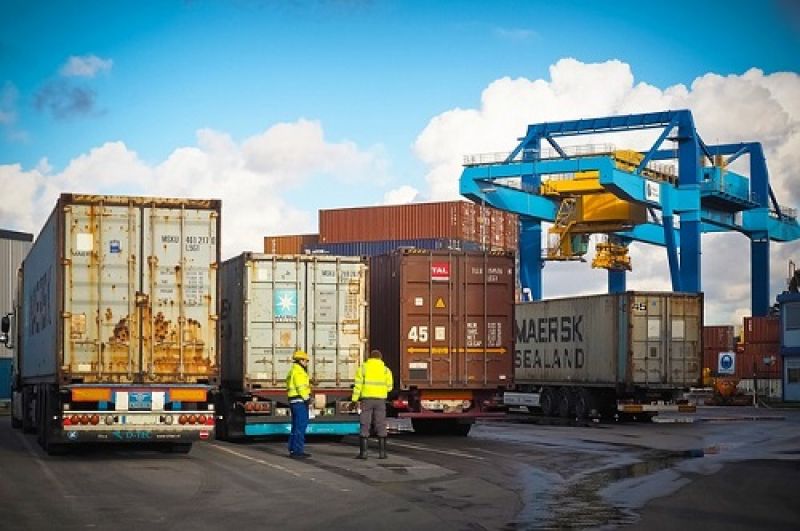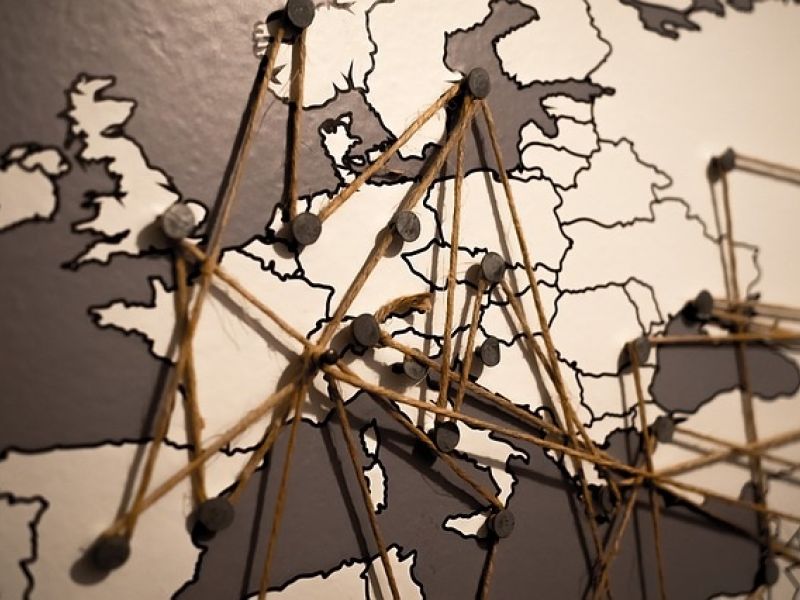Though there’s still a chance of avoiding it, the UK could be leaving the European Union pretty soon. While many of the repercussions of this can only be speculated about, one aspect that is set in stone is the effect it would have on trade. Businesses who trade with other EU nations will face administrative hurdles, namely the need for an EORI number to continue importing and exporting.
With the deadline looming and many businesses on the backfoot, the UK government has announced that it is auto-enrolling almost 90,000 businesses who had not yet signed up to the scheme. However, this is not the end of the preparation for businesses, nor does it explain what the EORI number is and why you need it. Here’s a little more information on what an EORI number does, and what you need to do before Brexit.
What is an EORI number?
An EORI number - short for Economic Operator Registration and Identification - is a way to simplify the process of customs entry declarations and customs clearance for imports and exports. Formulated by the EU in 2009, the scheme helps different customs authorities to share information with each other, expediting customs checks and improving security.
At present, an EORI number is only strictly required when trading with a non-EU country or a country which is not a part of the European Economic Area (EEA), such as Norway or Switzerland. However, the EU itself advises that all EU based importers or exporters have one, and they are often demanded by EU-based logistics companies.
Related article: The best country to start a business in Europe
Businesses which import or export from outside the EU and do not have an EORI number are not able to complete non-standard Entry Summary Declaration or Exit Summary Declarations. The lack of an EORI number can also cause delays and additional costs with both EU and non-EU trade, with the risk of shipments being impounded until your details are confirmed.
How does Brexit change things?
If there is a ‘no deal’ Brexit - in other words, if the UK leaves the EU on October 31st without ratifying a withdrawal agreement - UK businesses will be treated the same as non-EU businesses who currently trade with the EU. This means that they will be required to have either a UK EORI number - distinguished by the letters ‘GB’ in front of the 12 digits - or an EU one.
An EORI number is the absolute minimum requirement for EU trade - in other words, you will not be able to import or export at all without one. The exception to this is trade between Northern Ireland and the Republic of Ireland, which is not expected to require an EORI number of any kind. This is why the UK government has taken the unprecedented step of auto-enrolling all VAT registered businesses for an EORI number, with the details being sent out in the next couple of weeks.
Related article: How to pay cross-border VAT in the EU
However, there are other steps which may be necessary to smooth the transition process. While an EORI number will allow you to trade with EU nations, it does not account for the custom declarations you will have to fill out, or the new tariffs and other barriers to trade. The UK government has provided an additional scheme to help businesses transition into these new arrangements, which will temporarily reduce the costs and extra paperwork involved.
What are the Transitional Simplified Procedures?
Until now, trading with EU countries has often been a simpler process than trading with non-EU countries. This is due to the UK’s present membership of the European Economic Area, which is designed to remove barriers to trade such as tariffs and detailed customs declarations. After Brexit, trading with the EU will require more paperwork, which smaller businesses may find difficult to deal with.
The Transitional Simplified Procedures (TSP) are opt-in arrangements designed to ease this burden, and provide a transitional period in which the administrative burden of trade with EU countries is lessened. This will involve the deferment of import duties and customs declarations for at least six months after Brexit, ensuring that any delays due to lack of payment or improper paperwork are minimised.
Related article: Business Brexit: How To Relocate Your Enterprise to France
Businesses which sign up for the TSP will be able to transport goods from the EU into the UK without having to make full customs declarations or pay duties at the border for the first six months after a ‘no deal’ Brexit, slated for the 31st October. Following this grace period, they are expected to have a further week to provide declarations and pay import duties for any trade which happened within this six month window.
TSP will be available at any port or airport which receives trade from the EU, and is recommended for any UK business trading with the EU which does not use a customs special procedure. Regardless of whether you have signed up for TSP, all importers will also have a six month window to provide a guarantee that they can cover any customs duties incurred during this period.
Is there a way to avoid the hassle of a ‘no deal’ Brexit?
Depending on the nature of your business, you may not be able to avoid trading with other EU countries. It may be possible to offset some of the cost by switching to local products and suppliers, but there are relatively few products that do not involve imports or exports anywhere in the supply chain, and most of the same issues will apply to non-EU imports too.
One option for businesses of a sufficient size - or those who fancy a change of scenery - is to move or expand to another EU nation. By selling from your European base to other European nations, you can feasibly avoid the rigmarole of customs delays and tariffs by avoiding the UK altogether. This may also be a palatable option if you like the idea of retaining an EU passport and the privileges this entails.
Related article: How to open a branch of your business in France the easy way
The easiest way to achieve this is often to open a branch, which is an extension of your existing company, and as such tends to involve less paperwork. However, you may choose to start a new limited company instead depending on your situation. You could also set up in a country which has negotiated a free trade agreement with the EU, such as Japan, where the process of trading with the EU is similar to that between EU nations.
If you’re a small or home business, you may even consider storing your products in a European warehouse to avoid delays. One popular scheme is Fulfilment by Amazon (FBA), where stock is sent to warehouses around the EU and shipped to local customers. Amazon isn’t for everyone, and it’s uncertain how Brexit will affect this at present, but it’s possible that Amazon’s logistics could save you money in the long run.
Brexit remains a confusing and confounding topic for many businesses, but we hope this guide has provided some reassurance - or at least some ideas! The short version is that if you didn’t know about EORI numbers and hadn’t yet applied for one, the government has done that for you. If you trade a lot with EU countries, though, there are a few things you still need to consider - whether that’s signing up for the TSP or setting up a base on the European mainland.
Related article: Why you should be setting up a company in Ireland
Whatever you decide to do, Euro Start Entreprises are here to help. We’ve assisted countless businesses to expand abroad, including company formation services, accounting, tax advice and opening business bank accounts. You can download our free guides on opening a company in France or Ireland below. Click here to read our short guide on setting up a branch in France, or get in touch to discuss your options for dealing with a ‘no deal’ Brexit.




